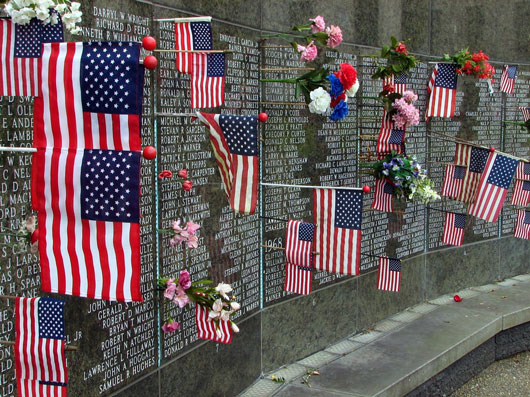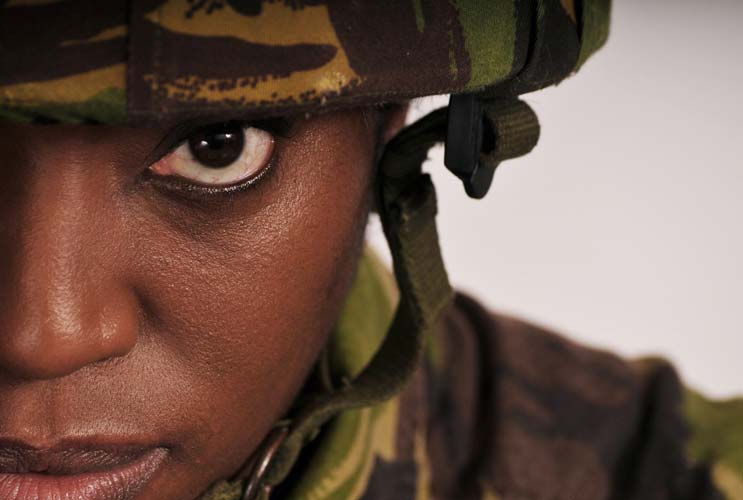
14. The Vietnam Veterans Memorial
The Vietnam Veterans Memorial was built entirely with private donations. Decorated Vietnam vet Jan C. Scruggs, created the memorial as a way to help both returning soldiers and “the national psyche” heal from this long and controversial conflict. The Memorial, also known as The Wall, was designed by Maya Ying Lin who won a VVM competition in 1981.
15. Suicide
The U.S. Department of Veterans Affairs reports that 22 veterans take their own lives daily. This is a suicide every 65 minutes. Even more disturbing, the suicide rate for male veterans under 30 rose 44% from 2009 to 2011.
16. There is Help
As a response, the Department of Veterans Affairs created The Veterans Crisis Line offering numerous resources including a live chat hotline and a phone hotline. Veterans contemplating suicide are encouraged to reach out to receive specialized counseling and assistance.
17. Post Traumatic Stress Disorder (PTSD)
Research is still being done on the effects of PTSD on veterans but it is estimated that 11-20% (as many as 460,000) of Afghanistan and Iraq war vets currently have some form of PTSD. Post Traumatic Stress Disorder can lead to a number of personal and mental health issues, including substance abuse and violence.
18. Incarceration
As many as one in 10 prison inmates have served in the military. Difficulties readjusting to civilian life, mental illness, PTSD and a tough job market all contribute to this statistic.
19. Coming Home
Returning veterans often face a difficult transition to civilian life. The VA offers resources for returning veterans, as does the Iraq and Afghanistan Veterans of America.
20. Saying Thank You
While most people appreciate a thank you, the experience of being in a war or war zone can be incredibly personal, traumatic and difficult for some people to talk about. And some veterans feel awkward or uncomfortable about being thanked by a complete stranger for what they feel was their duty, job, calling, or worse, a mistake. They would rather see civilians prepared to take the necessary steps to avoid war altogether.












